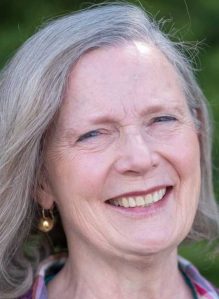Another Mile: Preparing for the roads ahead of us
Published 6:00 am Saturday, April 5, 2025
It was a blustery day in January. Exiting a local grocery store I ran into a friend from several community groups. Our brief greetings and queries about each other’s well-being stretched into an extended conversation about the challenges we face in later life. Based on two stories in the East Oregonian about her husband Andrew’s diagnosis of Alzheimer’s, I knew that Barbara Clark was facing new challenges daily. And yet those news features (April 13 and 20, 2024) were surprisingly positive about Andrew’s willingness to be part of scientific studies, and Barbara’s search for resources and new information as a caregiver.

Regina Braker
Her smile as she greeted me offered some reassurance as I asked how she was doing. And yes, my friend shared difficulties her life has taken on, but I was so heartened by her calm voice and the light in her eyes as she talked about new insights gained amid changing complexities. With several errands still to run before getting back home, we finally parted. As I left, I realized that I wanted to know more, and benefit from her wisdom.
Barbara’s long life, filled with adventures in fifty-seven nations, teaching in Tanzania, Kenya and Pakistan, and lessons learned from adversity, has brought a resolve of loyalty and love for her family, and courage to face great difficulty. As a school teacher who much later in life took on yet another level of study to further develop her mastery as an educator, she knows that for every problem we solve, there’s a creative path to its solution. And now she’s attending the school of solving unknown complications every day with cheer and a positive outlook.
The dementia journey has brought new mentors and friends, and with them Barbara and Andrew are staking out new possibilities for what lies ahead. Barbara regularly attends support groups, online and face-to-face, and sees the need for rural communities to increase those resources. For each of the four times she took the dementia classes offered by Rod Harwood, the Older Adult Behavioral Health coordinator for Baker, Morrow, Union, Umatilla, and Wallowa counties (www.gobhi.org/oabhi, 541-293-1755, rharwood@gobhi.org), there was something more to learn that addressed new changes in what was going on in her and Andrew’s lives. Of course, those classes also allowed her to meet new people who share similar realities, and support one another.
The friendships that come about are of a different kind than the interest-based sociability we share with neighbors or acquaintances in hobby groups. Deep bonds of reliance on one another grow out of a sense of grief and shared stories. And hope is in the mix, as these friends recognize a need to bring what was once a taboo topic to greater public awareness.
Barbara wants others to know that anyone can join Harwood’s dementia support group meetings on Zoom on the third Monday of each month, 11:30 a.m. to 1 p.m. And she is grateful for her newfound circle of caregiving friends, because along with her, they are advocating for in-person support groups. As a result, Saint Anthony Hospital in Pendleton began offering twice a month in-person meetings 10:30-12 on the second and fourth Mondays every month, led by Janet McFarlane. For those who cannot attend in person, the Zoom option is also available. What started with a handful of attendees has grown to a dozen or more.
After the EO articles made Andrew and Barbara’s story public, they heard from many others that talking about end-of-life decisions now feels socially acceptable. Andrew is initiating efforts in hopes of having
Oregon’s Death with Dignity laws revised to include persons with dementia diseases when they reach the stage of complete memory loss. Barbara and close friends are working to broaden a network of support for this initiative, and hoping many others will join in bringing about Death with Dignity for those who might desire this approach. In the mean-time she’s working on ways to bring joy into the lives of the dementia patients and their caregivers.
As children step up support for aging parents, they join in those conversations. And as we shine more light on the uncertainties that surround the end of life for us all, we support the creation of new pathways.
Regina Braker, of Pendleton, is a retired educator with journeys through many places and experiences who enjoys getting to know people along the way.



